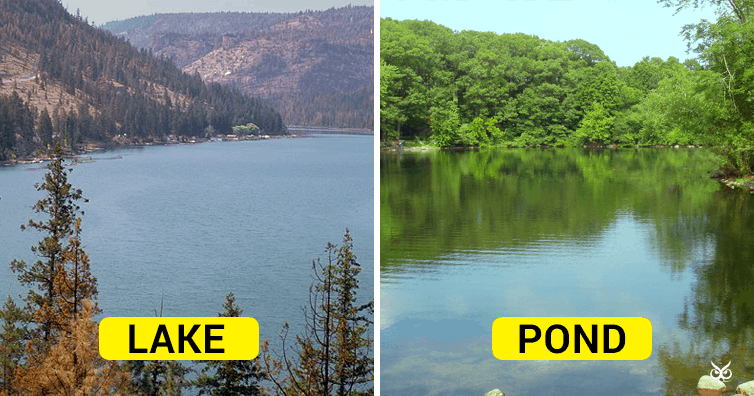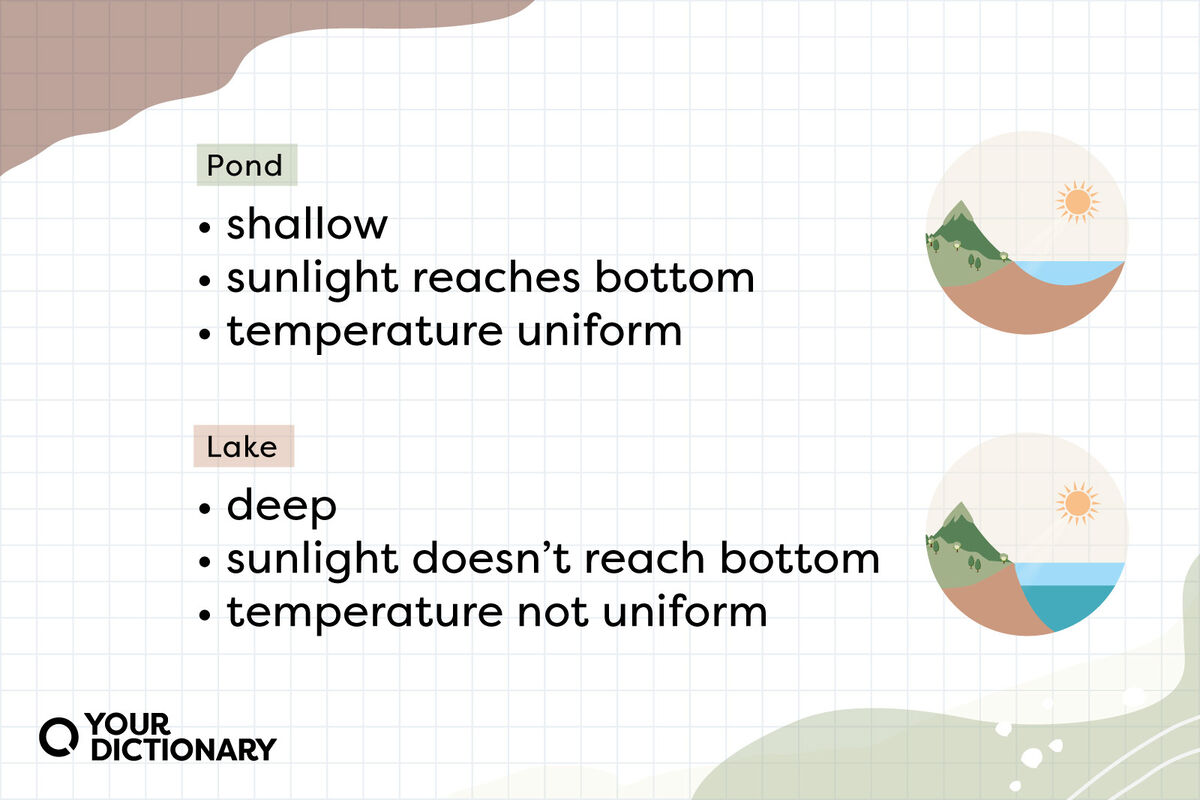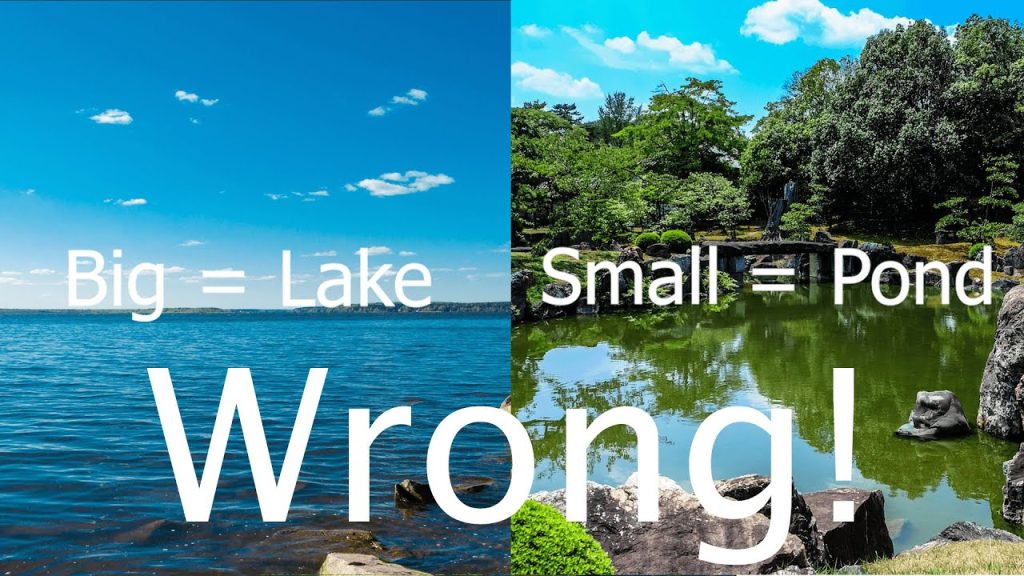Have you ever wondered about the distinction between a pond and a lake? While they may both be bodies of water, there are key differences that set them apart.

Credit: blog.ejoy-english.com
Size Matters
One of the main differences between a pond and a lake is their size. A pond is typically smaller than a lake, usually less than 20 acres in size, while a lake is larger, often exceeding 20 acres.
Depth
In terms of depth, ponds are usually shallower than lakes. Ponds are known for their relatively shallow waters, while lakes can have much greater depths, sometimes going hundreds of feet deep.
Formation
Ponds are often formed by natural processes like rainfall, while lakes are usually formed by geological events such as glacial movements or tectonic activity.

Credit: www.yourdictionary.com
Plant and Animal Life
Due to their smaller size and shallower waters, ponds tend to support a different variety of plant and animal life compared to lakes. Ponds may have more aquatic plants and smaller fish species, while lakes can sustain larger fish and a wider range of plant life.
Water Circulation
Another difference lies in water circulation. Ponds often have limited water circulation, which can lead to stagnation and higher algae growth. Lakes, on the other hand, usually have better water circulation due to their larger size, which helps maintain water quality.
Human Interaction
Human interaction is also a factor that sets ponds and lakes apart. Ponds are often found in more residential areas, serving as decorative features in gardens or parks. Lakes, being larger bodies of water, are more commonly used for recreational activities like boating and fishing.
Conclusion
In conclusion, while ponds and lakes are both bodies of water, they differ in size, depth, formation, plant and animal life, water circulation, and human interaction. Understanding these distinctions can help us appreciate the unique characteristics of each type of water body.




